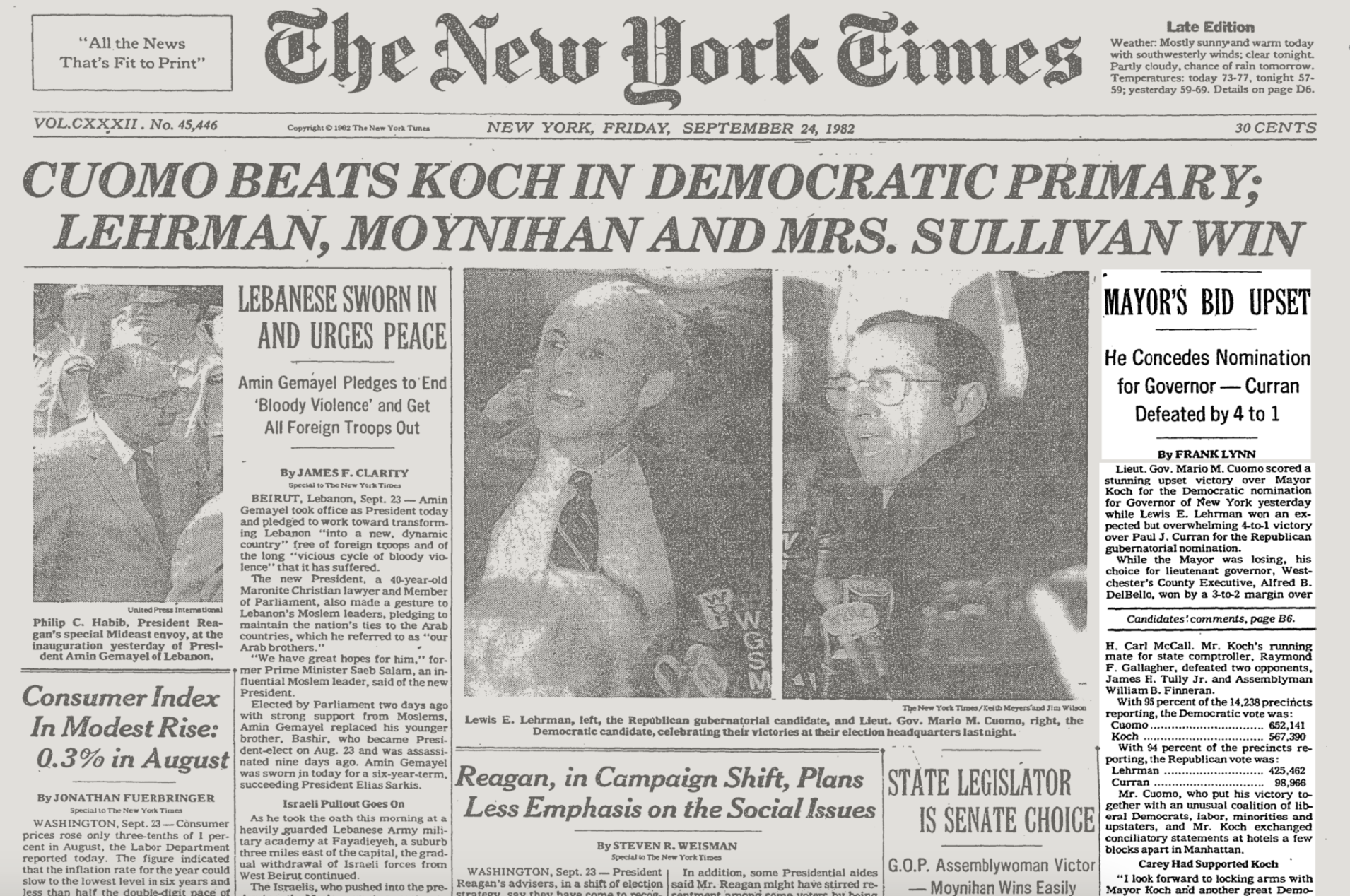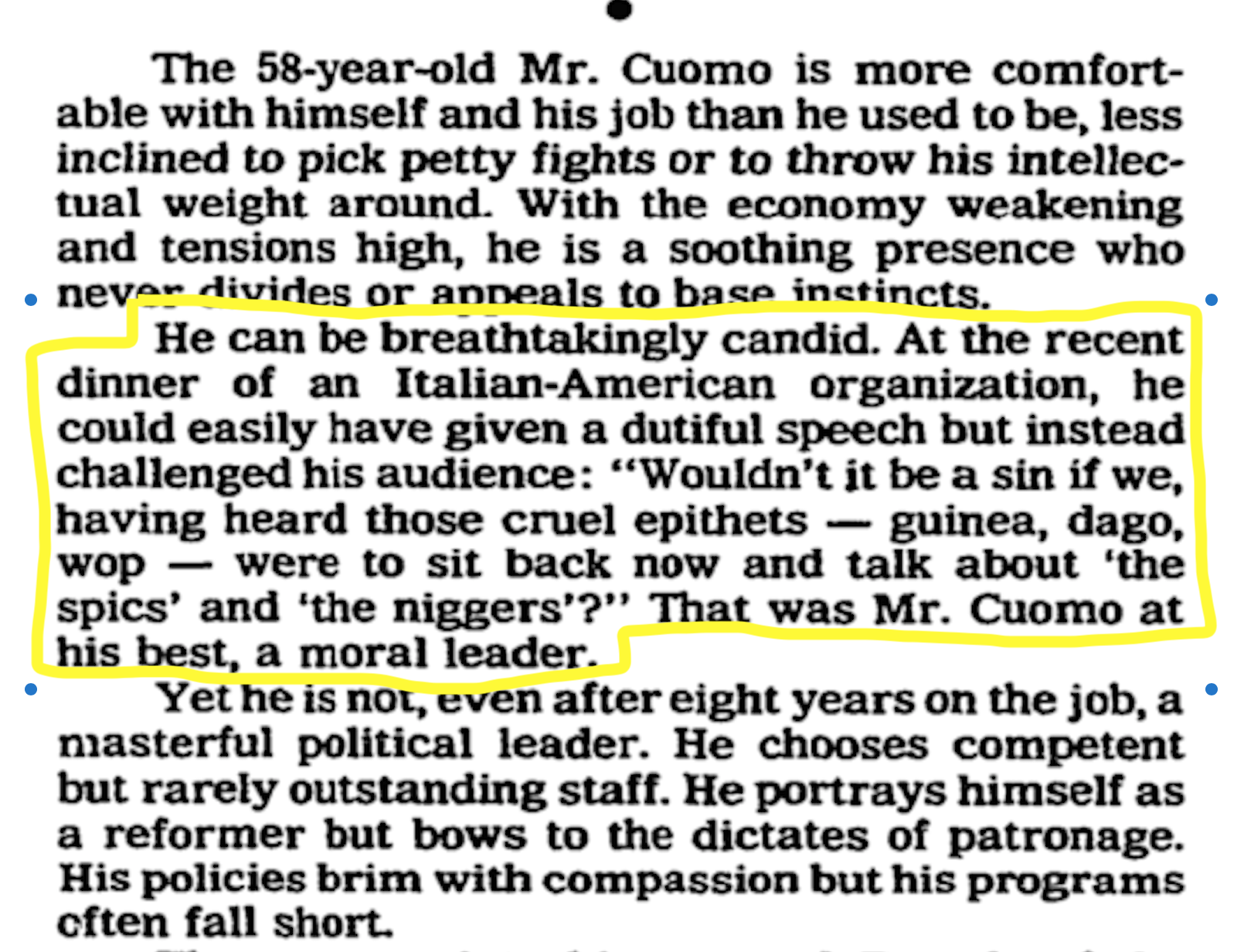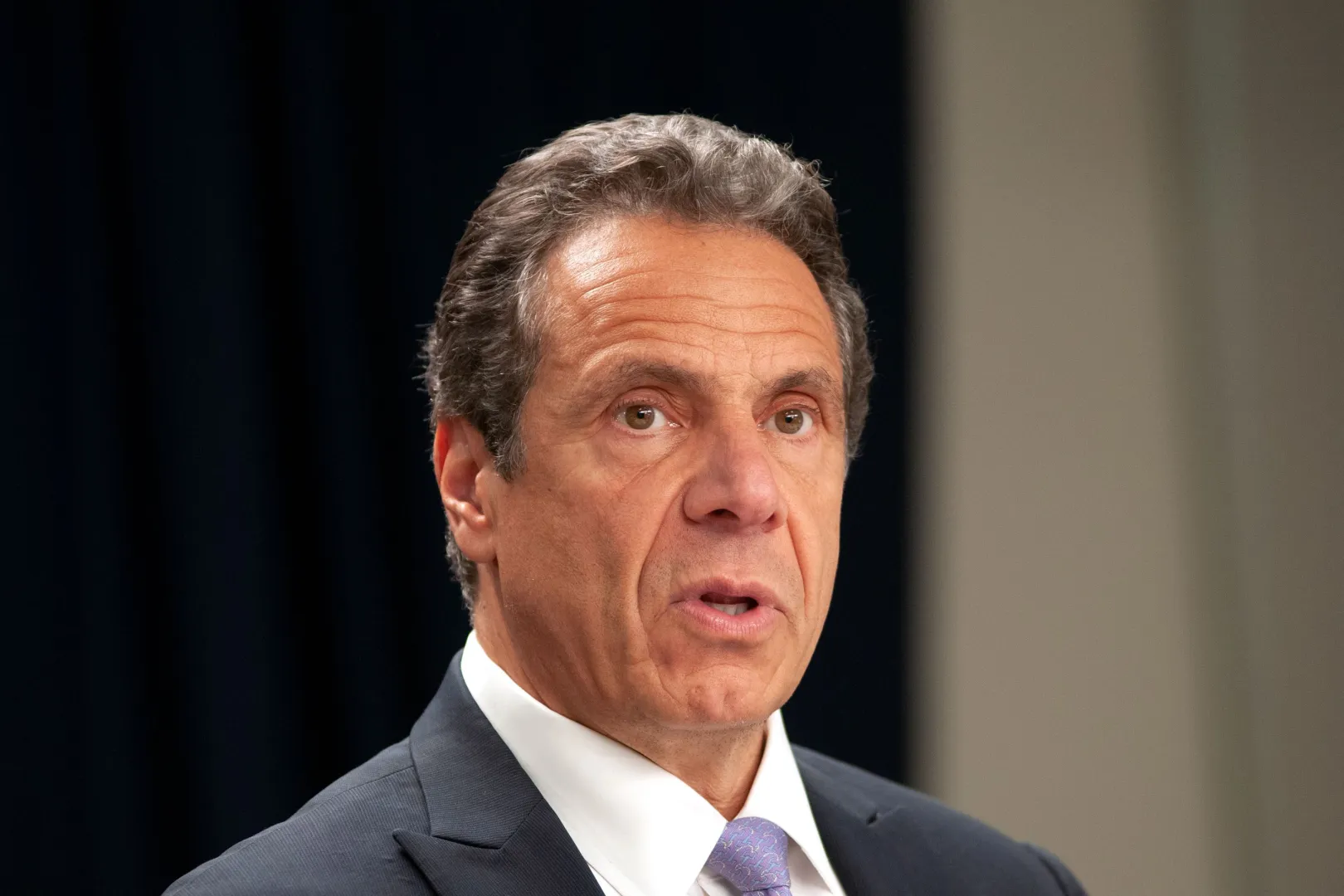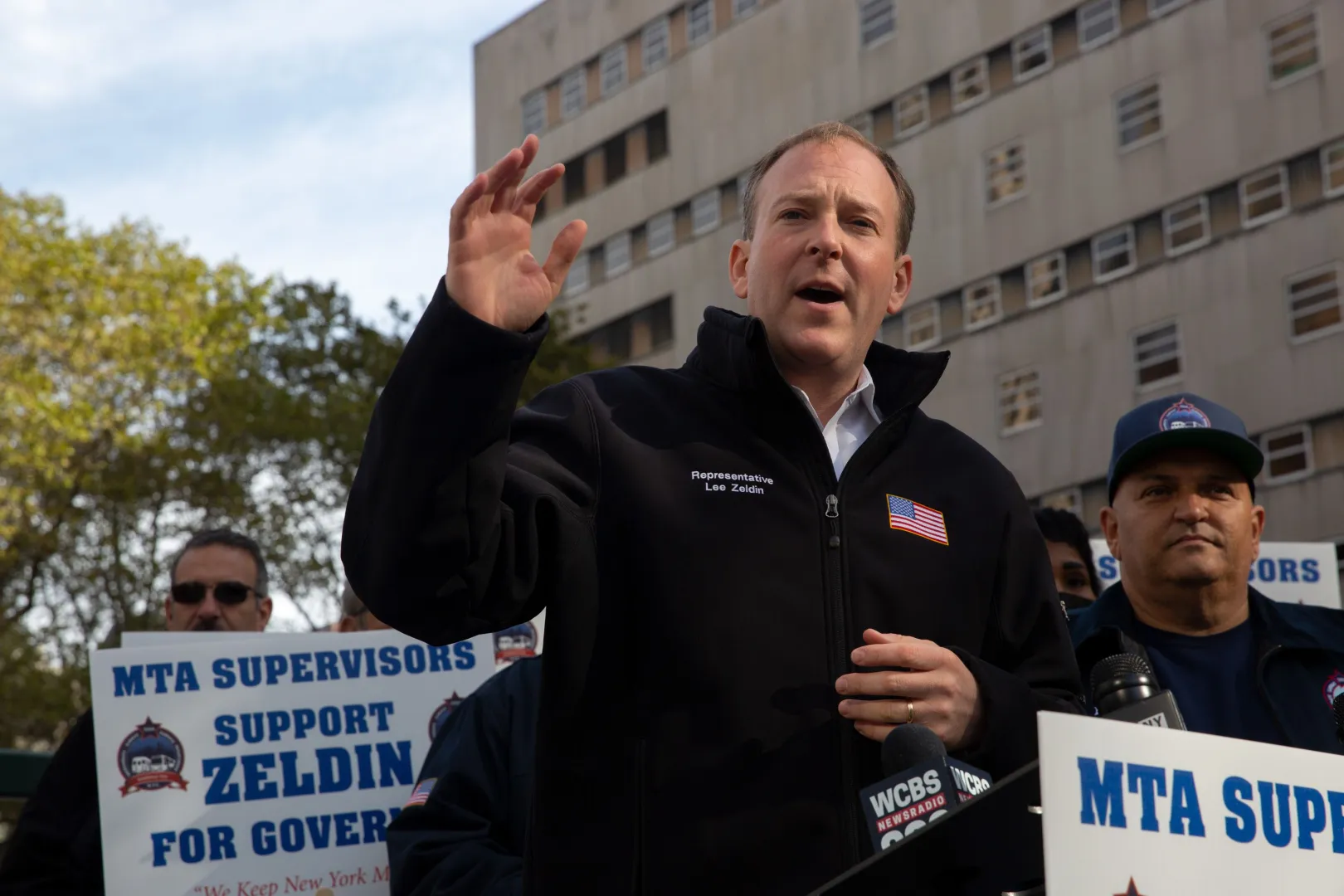This story was originally published in FAQ’s newsletter on September 7, and published online on September 14.
Enough about that unsigned op-ed in the New York Times.
Let’s talk about unsigned editorials!
For all the talk about the shrinking — and death — of newspapers, one thriving feature of the dead-wood industry is endorsements. The New York Times andDaily News both endorsed Zephyr Teachout for attorney general — along with rising star Alexandria Ocasio-Cortez, helping cement Teachout’s status as the front-runner in a race against a citywide official, a congressman, and a former aide to Hillary Clinton, Joe Biden and Andrew Cuomo.
And Cuomo himself seemed to secure his own re-election after the Times begrudgingly endorsed him in his primary. The decision in that race was billed, in part, as an acknowledgment that experience in government (paging Donald Trump) really is needed.
Thursday evening, the New York Times — having basically conceded that Cuomo is likely to get re-elected, no matter what they say — decided to endorse the anti-Cuomo candidate in the race for lieutenant governor. In endorsing City Councilman Jumaane Williams of Brooklyn, the Times wrote, “he has promised to call out the governor — whoever that may be — whenever necessary.”
Amazingly, this is not the first time the New York Times editorial page sought to pair a gubernatorial candidate with a running-mate not of his own choosing (in New York, it’s almost always a “he”). In fact, it’s not even the first of this type of governor and lieutenant governor pairing involving a Cuomo.
CUOMO, KOCH, A RUNNING MATE AND ‘A PROBLEM WITH MINORITIES’
The year was 1982, and the sitting Democratic governor, Hugh Carey, was not seeking re-election. His lieutenant governor, Mario Cuomo, wanted the top job. But so did the mayor of New York City, Ed Koch, who had just been elected to the top job in the Big Apple back in 1977 after upsetting that same Mario Cuomo.
No bother. Koch had proven he could govern the five boroughs better than his predecessor, and figured, why not take a bigger job. Cuomo, a heartbeat away from the state’s top job, was eager for it too, and wasn’t about to lose to Koch again.
The New York Times published their endorsements on September 19, just ahead of the September 23 primary.
The Times was swayed by Koch’s demonstrated ability to govern, comparing it to Cuomo’s ability to, uh, lieutenant govern. “Mario Cuomo would probably learn to be a good governor,” they wrote. “Ed Koch, having already performed well under stress, is the Democrats’ better bet.”
But in the Lieutenant Governor’s race, the Times saw an opportunity to correct one of Koch’s flaws.
Koch’s running-mate at the time was Westchester County Executive Alfred DelBello. Cuomo’s running-mate was a former state senator, “a minister, businessman and respected leader of the black community.” That man’s name is H. Carl McCall. (He would later go on to run for governor, in 2002, against Mario’s son, Andrew. The campaign turned personal.)
But in 1982, The Times endorsement urged its readers to vote for Koch for governor, but then, for Cuomo’s running mate, McCall. Why? The Times wrote: “Because Mayor Koch finds it so hard to relate to minorities, it makes special sense to put the able and articulate Mr. McCall at his side.”
It’s hard to imagine the editorial page today papering over such a shortcoming. Or praising an accomplished black politician as “articulate.”

Koch lost the race, in large part because of comments he made to a reporter before he entered the race, but which were published in the April 1982 issue of Playboy, in which the mayor said that living in the suburbs was “sterile. It’s nothing. It’s wasting your life.’’ He added that rural life was “a joke.”
By 1986, Cuomo did “learn to be a good governor” — so much so that the Times endorsed him for re-election. But, they also noted “his gift for conciliation and mediation has been shadowed by an unbecoming propensity for asserting authority and a taste for endless, intricate, contentious argument.”
By 1990, Cuomo was seeking a third term, and showed no sign of slowing down. In October 28 of that year, the Times published a fawning editorial about Mario Cuomo, titled, “The Governor, The Folk Hero.” The lede paragraph says, “It’s small wonder, as he runs against token opposition for a third term as Governor of New York, that Democrats consider him Presidential timber.”
But in that same editorial, they wrote this:

It’s hard to imagine a speech like that being received the same way today.




